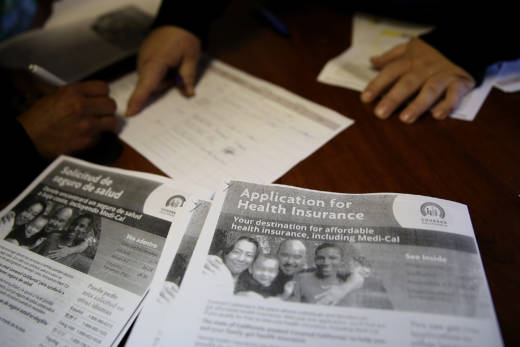Disgusted with federal attacks on Obama-era health reforms, a broad coalition of organizations and advocacy groups is pushing the state Legislature to enact a series of bills designed to expand health coverage in California and make it more affordable.
Labor unions, women’s groups, medical organizations, and immigrant and community activists are part of the more than 50 members of the Care4All California coalition. The top of their agenda is expanding Medi-Cal eligibility to all undocumented immigrants and increasing subsidies for people who purchase health insurance plans through the Covered California exchange.
The plan is not designed to compete with proposals for a single-payer health care system, said Anthony Wright, executive director of Health Access California, which is leading the campaign. Instead, it would allow California to move closer to achieving universal health care coverage at a time when the federal government is unlikely to sign off on allowing the state to pursue a single-payer plan, he said.
“We feel the opportunity and the urgency of getting more people covered and addressing issues of cost and equality in the health care system, and doing so in the short term without the need for federal approval,” Wright explained. “If we can forestall the repeal efforts at the federal level, then there’s real progress we can make in California, and that does not require us to run into a brick wall with the Trump administration.”
Altogether, the plan includes at least 20 pieces of legislation and budget items, some of which have been debated in the past and already introduced. Wright said the remaining pieces would be rolled out in the next couple of weeks. He said the coalition is confident many of the changes can be accomplished this year.

